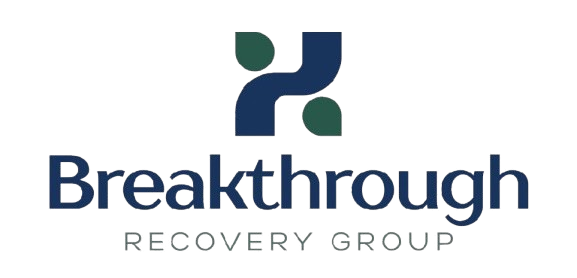
Exploring Treatment Options
Throughout the Spokane area, a variety of rehabilitation centers offer diverse treatment approaches tailored to individual needs. From intensive inpatient programs to flexible outpatient services, the options cater to those seeking support for substance use disorders across varying levels of severity. This diversity ensures every person can find a program aligning with their circumstances and recovery goals.
At BTRG Spokane, our commitment is to provide personalized therapeutic services that empower clients on their path to recovery. We combine evidence-based methodologies with a compassionate approach, fostering environments where individuals, couples, and families can rediscover well-being and hope. Our comprehensive services are particularly valuable for those navigating the multifaceted challenges associated with addiction recovery.
The Role of Personalized Care
Personalized care is at the heart of effective rehabilitation, and Spokane rehab centers excel in offering tailored treatment plans. By acknowledging each client’s unique journey with addiction and recovery, these centers provide therapy that aligns with individual needs and histories. This personalized approach not only increases the likelihood of successful rehabilitation but also empowers individuals to reclaim control over their lives.
Clients at BTRG Spokane benefit from a holistic approach where personalized treatment plans are crafted through collaboration between therapists and clients. This process ensures that therapies address specific emotional, physical, and psychological facets of addiction, providing a well-rounded recovery experience. We strive to create a safe space where clients feel motivated and supported to make lasting changes.
In addition to standard treatment modalities, personalized programs often incorporate innovative therapies such as art therapy, equine therapy, and mindfulness practices. These creative outlets offer alternative ways for individuals to process emotions and develop healthy coping strategies, contributing to the overall effectiveness of personalized rehabilitation.
Community and Support Networks
Strong community support is a powerful asset during the recovery process, playing a pivotal role in overcoming addiction. Spokane rehab centers often integrate community-based programs into their treatment frameworks, fostering connections among clients who share similar experiences. These networks offer encouragement, accountability, and understanding, crucial elements for sustainable recovery.
At BTRG Spokane, we emphasize the importance of building robust support systems both within our therapy sessions and beyond. Engaging family members, friends, and support groups in the recovery journey can significantly enhance resilience and motivation. Our focus on inclusivity ensures that clients feel comfortable and supported throughout their healing process.
The sense of belonging found within these communities can instill hope and determination, essential for navigating the challenges of life post-rehabilitation. Regular participation in group therapy and support meetings helps reinforce positive behaviors and provides ongoing encouragement as clients transition back into daily life.
Innovative Therapies and Methods
Spokane rehab centers are renowned for incorporating innovative therapies into traditional treatment structures, appealing to a broad spectrum of clients. These methods may include experiential therapies like adventure therapy or music therapy, providing creative avenues for expression and healing. Such diverse offerings can be particularly beneficial for individuals who may not respond well to conventional therapeutic approaches.
At BTRG Spokane, we embrace innovation by continuously integrating new techniques and therapies into our services. We believe that a varied therapeutic toolkit allows clients to engage with the recovery process in a way that resonates personally, enhancing both the appeal and effectiveness of treatment. Our commitment to professional development ensures that we remain at the forefront of therapeutic innovation.
Whether through art, movement, or nature-focused interventions, innovative therapies offer fresh perspectives on recovery. They challenge clients to explore new dimensions of themselves, building resilience and adaptability that can be carried into sober living.
Incorporating technology into therapy, such as teletherapy and virtual support groups, further extends the reach and accessibility of innovative treatment approaches. These technological solutions ensure that clients can access the support they need, regardless of geographical or logistical constraints.
Impact of Professional Support
Professional support plays a critical role in the success of rehabilitation efforts, providing expertise that guides individuals through their recovery journey. Spokane rehab centers feature experienced therapists and medical professionals who offer critical insights and tailored guidance. This professional involvement is vital in addressing complex addiction issues and developing effective, individualized treatment plans.
At BTRG Spokane, our team of qualified therapists is dedicated to supporting clients with compassion and expertise. Our professionals work closely with clients to navigate the intricacies of addiction recovery, ensuring that each approach is as unique as the individuals we serve. By fostering trust and understanding, our therapists create a nurturing environment where meaningful progress can occur.
Why Spokane Rehab Centers Stand Out
In the landscape of addiction treatment, Spokane rehab centers distinguish themselves through their personalized care, community involvement, and innovative approaches. These facilities prioritize creating supportive environments that empower clients to explore and address the root causes of addiction, setting the stage for long-term recovery.
Even in situations where relapse might occur, the support and resources provided by these centers ensure that individuals are equipped to face challenges head-on. With the backing of compassionate and knowledgeable professionals, clients are better positioned to achieve lasting sobriety.
Spokane’s reputation for offering comprehensive and accessible rehab services is complemented by the deep care provided by facilities like BTRG Spokane. Our commitment to inclusivity and continued support underscores the dedication that drives successful rehabilitation outcomes.
Through a combination of traditional and modern therapies, Spokane’s rehabilitation centers offer a dynamic approach to addiction recovery. By staying ahead of industry trends and incorporating feedback from clients, these centers are able to continually refine their programs and enhance the efficacy of their treatment offerings.
Importance of Holistic Recovery
Holistic recovery embraces the interconnected nature of physical, emotional, and spiritual health in the healing process. Spokane rehab centers champion this approach, ensuring that treatment plans consider all aspects of an individual’s well-being. This comprehensive perspective facilitates deeper healing and personal growth, aligning with the philosophy of empowering clients through every stage of recovery.
At BTRG Spokane, our therapies incorporate holistic practices that encourage clients to explore the broader impact of addiction on their lives. By addressing not only the symptoms of addiction but also the underlying causes, we help clients build a foundation for sustainable change and personal development. Our holistic approach includes therapies that promote mental wellness, physical health, and spiritual balance, recognizing the value each of these components brings to recovery.
- Mindfulness and meditation practices help clients cultivate inner peace and resilience.
- Nutrition and fitness programs support physical recovery and overall health.
- Creative therapies provide outlets for emotional expression and processing.
This multifaceted approach not only enhances the effectiveness of treatment but also equips clients with diverse tools and skills necessary for long-term sobriety.

How many days do you get in rehab?
The length of time someone might spend in a rehab facility varies widely depending on their individual needs and the type of program they choose. At BTRG Spokane, we understand that recovery is a deeply personal journey, and we work with each client to tailor their treatment plan accordingly. Typically, inpatient programs can last from 28 days to 90 days or even longer, depending on the severity of the substance use disorder and the individual’s progress. Outpatient programs might offer more flexible timelines, allowing clients to balance treatment with other responsibilities. We find that having a conversation about expectations and goals at the outset can help in determining the most suitable duration for each client. How do you envision your own path to recovery?
How much does it cost a person on average for inpatient rehabilitation in the state of Wisconsin?
While we are based in Spokane, we’ve had insights into the broader rehab field, including costs in other states. In Wisconsin, for example, average costs for inpatient rehabilitation can range from $6,000 to $20,000 for a 30-day program. The price can fluctuate significantly based on the facility, the level of luxury, and the types of services offered. At BTRG Spokane, we stress the importance of considering not only cost but also the quality and appropriateness of care when choosing a rehab facility. We recommend reaching out to facilities directly to discuss what specific costs entail and what financial options may be available to help manage expenses. What factors do you consider most important when evaluating rehab options?
What happens at a rehab facility?
The day-to-day experience at a rehab facility like BTRG Spokane can vary greatly depending on the program, but generally, it involves a structured schedule of therapy, education, and activities. Upon arrival, clients typically undergo an assessment to create a personalized treatment plan. Daily routines often include individual therapy sessions, group therapy, educational workshops, and wellness activities such as yoga or mindfulness practices. The goal is to provide a holistic approach that addresses the physical, emotional, and psychological aspects of addiction. We also emphasize community support and building strong relationships within peer groups to aid recovery. It’s a comprehensive process aimed at equipping individuals with the tools they need for long-term sobriety. How do you feel about the idea of engaging in a structured recovery program?
How many times go to rehab?
The number of times a person might attend rehab can vary widely. Some individuals find success after one treatment program, while others may need multiple attempts to achieve lasting recovery. Relapses can occur, and they are not necessarily a sign of failure but rather an indication that adjustments might be needed in one’s approach to recovery. At BTRG Spokane, we emphasize the importance of learning from each experience and adapting strategies to better meet personal needs. The key is persistence and willingness to seek help when needed. Our team is here to support clients every step of the way, whether it’s their first time seeking help or their third. What do you think might be important considerations when returning to rehab after a relapse?
Why is personalized care crucial in rehabilitation?
Personalized care is central to effective rehabilitation because every individual’s journey through addiction and recovery is unique. At BTRG Spokane, we focus on understanding each client’s specific history, challenges, and goals to create a treatment plan tailored to their needs. This approach not only respects the individuality of each person but also significantly enhances the chances of successful recovery by addressing the underlying factors contributing to their addiction. We believe that empowerment comes from recognizing and nurturing each client’s strengths and potential. How do you believe personalized attention can impact your or someone else’s recovery journey?
How do community support networks aid recovery?
Community support networks are invaluable in the recovery process. They provide a sense of belonging and accountability, and they play a critical role in sustaining long-term recovery. At BTRG Spokane, we integrate community interaction into our programs because we’ve seen the profound impact it has on our clients. Being part of a community allows individuals to share experiences, receive encouragement, and offer support to others. This mutual support can enhance resilience and motivation, making the transition back into daily life less daunting. How important do you think it is to have a supportive community during recovery?
What innovative therapies are used at BTRG Spokane?
We are proud to incorporate a variety of innovative therapies into our treatment programs at BTRG Spokane, recognizing that diverse methods can resonate differently with each client. Innovative therapies like art therapy, equine therapy, and mindfulness practices offer unique avenues for self-expression and healing. We also leverage technology through teletherapy and virtual support groups, ensuring that our services are accessible even when in-person meetings are not possible. This blend of traditional and innovative therapies equips our clients with diverse tools to explore and enrich their recovery journey. Which type of therapy do you find most intriguing or beneficial for personal growth?
Resources
- Substance Abuse and Mental Health Services Administration (SAMHSA) – SAMHSA is a government organization dedicated to leading public health efforts to advance behavioral health across the country.
- National Institute on Drug Abuse (NIDA) – NIDA is a federal government research institute focused on understanding the impacts of drug abuse and addiction and developing effective prevention and treatment strategies.
- Alcoholics Anonymous (AA) – AA is a global organization that provides support and resources for individuals struggling with alcohol addiction through a 12-step program.
- National Alliance on Mental Illness (NAMI) – NAMI is a grassroots mental health organization dedicated to providing advocacy, support, and education for individuals and families affected by mental health conditions.
- National Institutes of Health (NIH) – NIH is a leading medical research agency that conducts and supports biomedical research to improve health and well-being.




